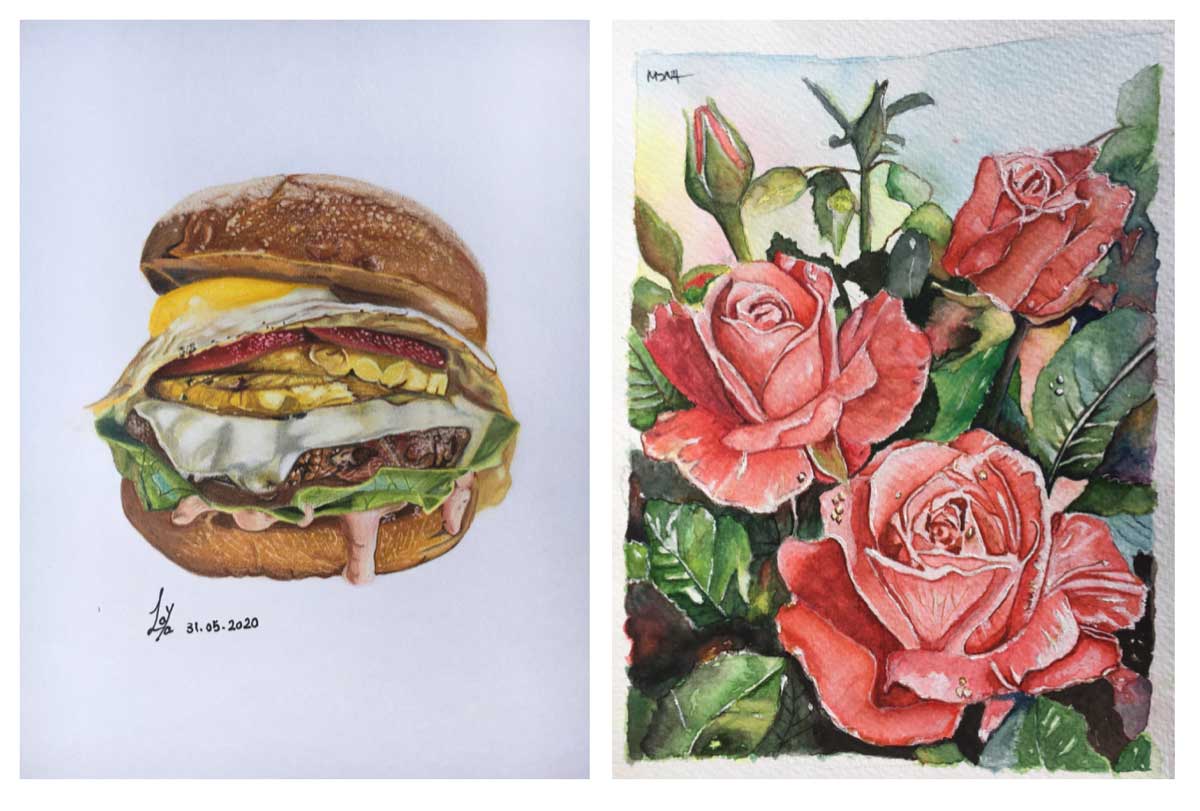By Sarah Wayland
What does one crave after traveling for 72 hours, traversing three countries and crossing the Atlantic Ocean on a packed flight, in the midst of a global pandemic?
After four hours spent clearing Canadian immigration at Pearson Airport, and with only the final leg of the journey remaining, three weary travelers made a simple request: “hamburgers.” And so Archdeacon David Anderson and his wife Kathryn steered the rental van to a fast food drive-through before delivering them to their short-term accommodations in their new home of Hamilton, Ontario.
Khadijah and her two daughters are amongst the first refugees to arrive in Canada after a six-month suspension of immigration imposed by the federal government due the COVID-19 global pandemic.
As privately sponsored refugees, they are supported during their first year in Canada by the Diocese of Niagara and the Church of St. John the Evangelist, Hamilton. A dozen volunteers from the parish and surrounding community are working with the family to find housing, introduce them to life in Canada, connect them to services, and support them in making many decisions about education, work, and life.
That this family has arrived here is testament to the power and networks of the Anglican Communion. After fleeing Iran for Turkey, the three women, who are Christian, attended an Anglican church in Ankara. Eventually, they met Bishop David Hamid, formerly a priest in the Diocese of Niagara and now suffragan bishop for the Diocese in Europe. Bishop Hamid connected them to Scott McLeod who oversees refugee sponsorships for the diocese. Once the applications were complete and various hurdles cleared, the wait began. The process started moving forward in early 2020 when the family was invited for medical screening, one of the final stages before traveling. Then COVID-19 hit, and the preparations ground to a halt. Six months later, after a total of five years in Turkey, the women arrived in Canada on September 21.
I met Khadijah and her two daughters near the end of their 14-day quarantine period (social distancing of course) and asked them to describe their first days in Canada. So far, they said, they have passed the time doing some of the same activities that characterized their life in Turkey: TV, cooking, yoga, and sketching and painting. In Turkey, art classes were one of the few avenues open to the women, and they took full advantage, producing lovely renderings of flowers, food, people and Jesus (Khadijah’s favourite subject). Now, however, they feel relieved and no doubt a bit nervous to start new chapters of their lives. Lucy and Ziggy, their two beloved cats who were adopted in Turkey, are expected to arrive later this week.
The women are eager to see Hamilton, find a new place to live, and improve their English skills. Khadijah would love to continue her profession of teaching hairdressing. The older daughter, 27, would like to find work in her field of material science and metallurgy engineering. “I hope I can be useful for Canadian community too,” she said.
The younger daughter, 20, is keen to complete high school and move on to postsecondary education. Both daughters expressed their interest in continuing to draw and paint.
As they reflected on their journey and their hopes for life in Canada, Khadijah says she is “very very very happy.” No doubt speaking for all of them, one of the sisters shared these thoughts: “We have been patient for five years for this dream. Now we are in Canada, and we still don’t believe it… We feel that our lives will really start in two days when we are allowed to get out.”
To learn more about the Diocese of Niagara’s refugee sponsorship activities, or to donate to the diocesan refugee sponsorship fund, please visit: https://niagaraanglican.ca/ministry/refugee-sponsorship You can help make a difference to this family and others in need.

Viewing 2026 Through a Different Lens